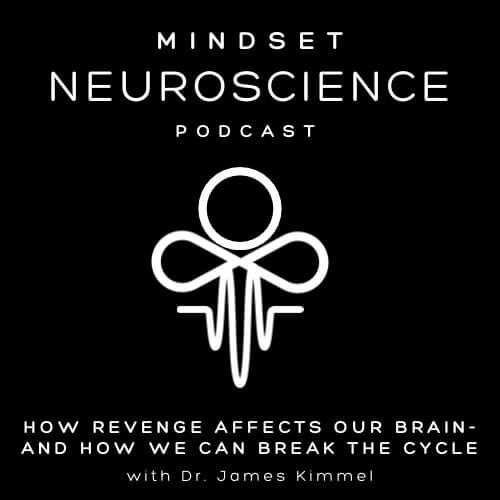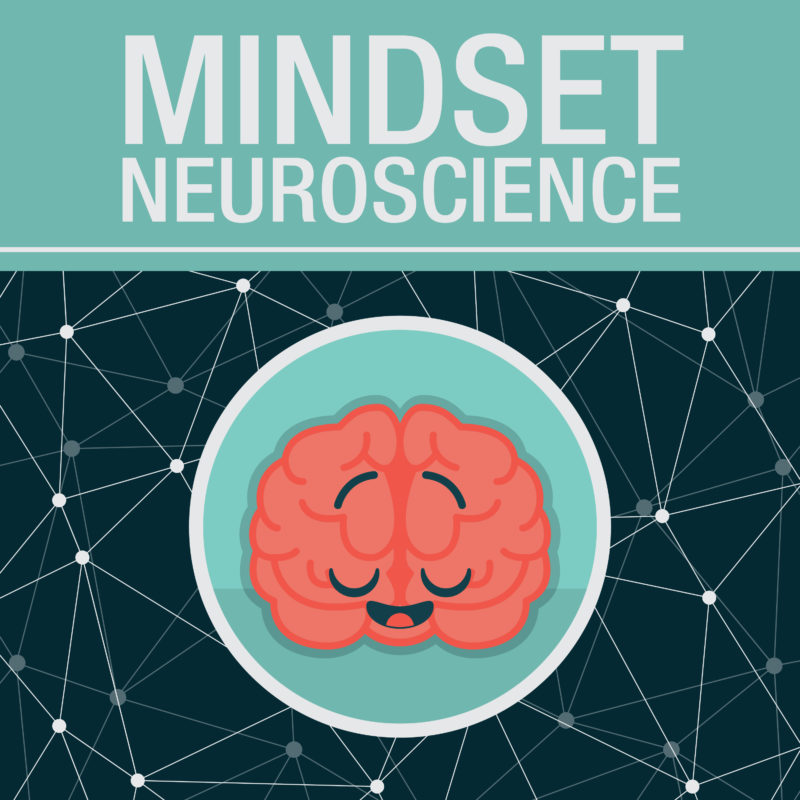How does revenge play a role in our world?
Neuroscience research shows that its neurological basis plays a deeper, darker role than we might have imagined...
“Behavioral studies from around the world confirm that people who hurt (or kill) other people are almost always acting in response to a personal grievance—a real or imagined perception of having been wronged, betrayed, shamed, humiliated, or victimized.”
- Dr. James Kimmel

These studies reveal that revenge seeking is a primary root cause for a long list of human violence and intentionally inflicted suffering. And this can range from bullying and youth violence to intimate partner violence, gang warfare, torture, terrorism, and violent extremism
But… revenge is not always a very obvious form of violence.
As Dr. Kimmel explains, it can also happen in social and personal interactions where we might be more subtle about it. It can look like sabotage in workplaces or relationships. It can also look like unkind words, insults, or withdrawing social connection or affection to punish someone. It's also something that emerges at a very young age. We see behaviors related to revenge and retaliation as early as toddlerhood and continuing throughout life
Listen on:
Blubrry media player:
Desire for Revenge is neurological - not always pathological
What Dr. Kimmel's work really highlights the neurological basis of revenge. First, the idea of revenge and the concept of revenge is not necessarily pathological. We all experience feelings of injustice and having a grievance and wanting to retaliate. It becomes disruptive and dysregulating and maybe even debilitating when it takes more of the form of an addiction.
This is a major aspect of Dr. Kimmel's work: the addictive element of revenge, including revenge-rumination.
“Recent behavioral and neuroscience studies of what’s happening inside the brains of people with grievances have led to a chilling discovery: activation of revenge desires and the pleasure and craving neurocircuitry of addiction.”
-Dr. James Kimmel
A pain-pleasure cycle is at the heart of most addictions - including revenge
at its core, the drive for revenge comes from a perceived grievance or injustice. And this can trigger a very primal response in our brains. Experiencing:
- a grievance
- perceived mistreatment or injustice
- humiliation
- rejection
These events (including perceived events) can activate the brain's pain network and primarily the anterior insula
The brain then seeks to restore balance.
And a powerful evolutionary adaptation leads us to derive pleasure from just imagining ourselves inflicting pain back upon the perceived wrongdoer, or even the people or things or animals associated with them.
This kind of pain and pleasure circuitry mirrors the brain's response to addictive substances.
But, as mentioned earlier, revenge is not in itself pathological. And it doesn't necessarily become an addiction.
Just like with all addictions, it can be disruptive if a person is unable to resist ruminating and simulating revenge scenarios, potentially acting them out, or if this constant pain, pleasure, kind of circuitry activation is interfering with healthy functioning and moving on and doing other things that are productive for their life.
How do we break the revenge cycle?
A key to breaking this cycle, as is the case with many different mental health challenges, lies in the activation of particularly important circuitry in the prefrontal regions, our executive control networks. And these areas are responsible for self control and decision making and long term forecasting of different scenarios.
When we can activate these, we can get a little better at really weighing the cost and benefit of our actions so that we have a chance to choose one path over another and to weigh in on how this might really truly impact us in longer term cycles than just acting something out in the moment of that pain, pleasure, kind of circuitry happening.
Forgiveness is about optimizing brain circuits
As Dr. Kimmel and I talk about the idea of forgiveness, I realize that it could be helpful to explore another word for it.. sometimes just the thought of forgiveness can activate something very deep for people - where it feels impossible to do in certain situations (and understandably so).
In my own work, I have guided people through different processes, mapped their brains and heart rate variability, and then facilitated deep processes of worst case scenarios, connecting the dots between early childhood experiences and how things are playing out now. I have had the incredible experience of watching brain waves in live time as people immersed themselves in sensory deprivation pods while going through processes such as:
- forgiveness and seeking guidance from an intelligent Being (someone they considered a guide or wise teacher)
- connecting of dots - whether it was the long threads of history, moving into the future, different historical cycles, family cycles,
- spiritual and transcendent or mystical kinds of thought experiments or beliefs…
All of those different kinds of explorations of the mind resulted in profound revelations and releasing of what seemed like repetitive, ruminating brain activity for many of the people. They reported feeling released from narratives that were keeping them stuck and feeling like they were trapped or blocked or just couldn't break through to another level. We might call it forgiveness or we can explore calling it something by a completely different name.. For example, transcendent brain activity. (It is also very systems-thinking oriented).
For any of you out there who feel like you might be kind of stuck in the past or with past grievances
.. perhaps there is space to reflect on the steps that Dr. Kimmel lists in his book, or think about how to release some of that brain activity that might be stuck in a past-grievance-rumination cycle.. See what transcendent or forgiveness related thoughts might bring to your life - And literally to your brain architecture. There are incredible circuits and neurons that are ready to be fired up that could give you profound insight into what you might be able to do internally through your own mind. Those new circuits have the potential to release you into a new State of Being, one that is powerful and strong.
Releasing things from our past does not leave us weak or vulnerable.
It allows our mind-brain-body to fully interact with the live, raw data that is present with us now. And from that present-moment state, it is more accurate in its ability to see new ways forward - ways that can truly optimize our life for the long -term
When we access the most sophisticated powers of our mind-brain-body we also have a chance of finding ways to ensure that what we might have gone through doesn’t have to happen again (to us or someone else). We have the chance of breaking cycles that have existed in humanity for millennia.. And move into a higher place of who we can be as a species.
About Dr. Kimmel
James Kimmel, Jr., JD, is a violence researcher, psychiatry professor, and author who explores the science of revenge, addiction, forgiveness, and violence
James Kimmel, Jr., J.D. is a lawyer, author, Assistant Clinical Professor of Psychiatry at the Yale School of Medicine, and the founder and co-director of the Yale Collaborative for Motive Control Studies. A breakthrough scholar and expert on revenge and forgiveness, James first identified compulsive revenge seeking as an addiction. He developed the behavioral addiction model of revenge and the brain disease model of revenge addiction as public health approaches for preventing and treating violence. He made the study of revenge and forgiveness his life's work after nearly committing a mass shooting as a teenager.

